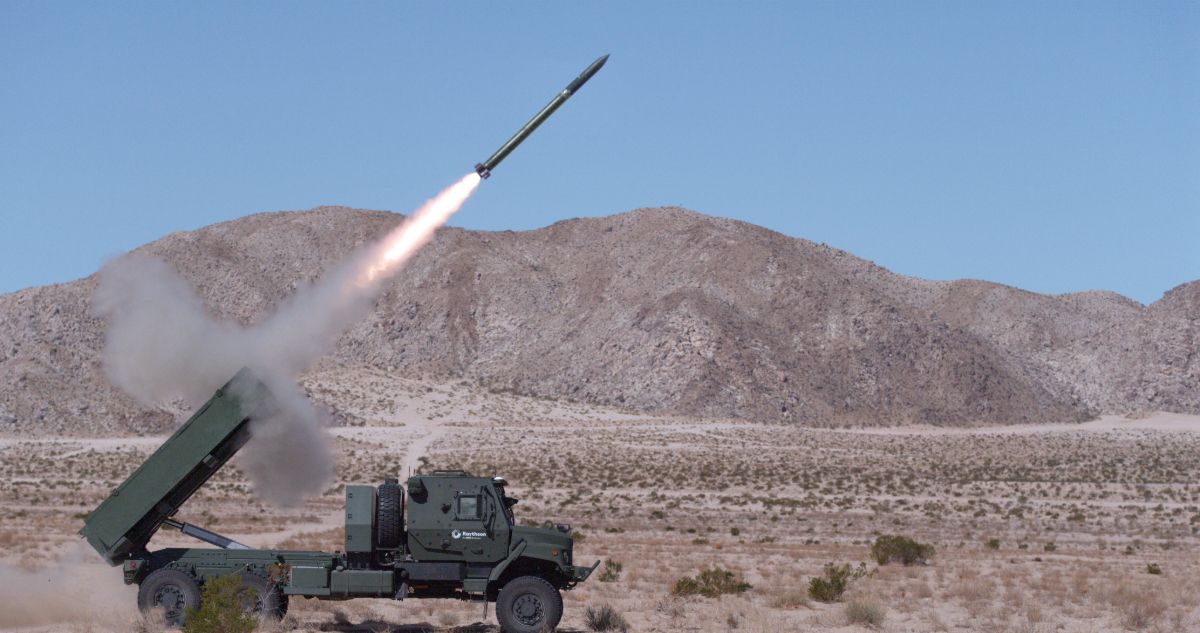
U.S. defense contractor Raytheon announced a successful test of the DeepStrike autonomous mobile launcher vehicle this week.
The demonstration, which took place at the Army’s Project Convergence Capstone 5 this month, showed off DeepStrike’s offensive and defensive capabilities. The new mobile rocket launcher was a collaboration between four companies, with each contributing something new to the system.
Raytheon supplied the missile and launching system, Forterra supplied the autonomous driving software, Oshkosh Defense provided the driving platform and electronic systems, and Ursa Major supplied the missile’s rocket motor.
“We’re really proud of being able to partner with these companies and, we think, this level of innovation really brings some new opportunities to both us and to our customers like the United States,” said Tom Laliberty, president of Raytheon’s land and air defense systems.
The demonstration showcased DeepStrike’s advanced capabilities and flexibility, which will support U.S. defense goals, Raytheon said.
“DeepStrike provides soldiers with a modern platform, autonomous capability and increased magazine depth to meet the Army’s future fires requirements,” said Brian Burton, Raytheon vice president of precision fires and maneuver. “At Project Convergence, Raytheon demonstrated revolutionary autonomous launcher technology: a self-driving launcher designed to operate seamlessly in all weather conditions, on all terrains, and in harsh battlefield environments.”
Raytheon’s newly designed missile was created under the Army’s Joint Reduced Range Rocket program. The program seeks to develop missiles effective against modern adversaries with advanced anti-missile technology.
DeepStrike’s launcher also adds to the number of weapons that can be fielded. The Raytheon-manufactured launcher system can fire missiles of various sizes, while the Forterra-supplied autonomous driving software gives DeepStrike enhanced mobility.
“It basically reduces the variety of things that the army has to buy. So it streamlines their acquisition, and then it streamlines their training of personnel and then it streamlines their ability to sustain that with spare parts and repairing anything that might need maintenance,” Mr. Laliberty said. “The flexibility that it provides once you fill the system, being able to essentially have the flexibility to change from a piece of equipment used for an offensive mission to then convert that to defensive mission, provides the army with incredible flexibility.”
While the test was a success, Raytheon says that its team plans to continue testing DeepStrike this year. The company says it plans to conduct firing tests in offensive and defensive stress environments.






![Trump's Admin Guts Another ‘Rogue Government Agency with Zero Accountability’ [WATCH]](https://www.right2024.com/wp-content/uploads/2025/03/Trumps-Admin-Guts-Another-‘Rogue-Government-Agency-with-Zero-Accountability-350x250.jpg)
![‘We All Owe Him (Elon) a Huge Debt of Gratitude’ [WATCH]](https://www.right2024.com/wp-content/uploads/2025/03/‘We-All-Owe-Him-Elon-a-Huge-Debt-of-Gratitude-350x250.jpg)









